Cricket NT in discussions with the ICC to bring emerging nations to the Territory
How the Top End missed out on hosting an international cricket match, but the most exciting chapter in NT Cricket’s history could be set to come. LONG READ
Sport
Don't miss out on the headlines from Sport. Followed categories will be added to My News.
IT WAS over dinner at an inner city Melbourne restaurant in early 2019 where the message from Cricket Australia hit the Territory’s new head honcho right between the eyes: if funding is what you’re after, devise a plan that will benefit all the six states, not just the Top End.
On the receiving end of that blunt missive at the Park Hyatt was a relatively fresh-in-the-role Cricket NT chief executive Joel Morrison and chairman Bruce Walker, a mainstay of Territory cricket for decades.
Morrison, a Darwin product, who had previously worked in the commercial and operations space for CA, admits he was initially drawn to the role by Walker’s vision for Territory cricket, over lunch at the 2017 Boxing Day Test.
Walker’s dream was to better leverage the “unique climate” of the Territory, and build a “winter cricket business”, Morrison tells the NT News at his DXC Arena office.
And the business seems to be humming along quite nicely so far, evidenced by the expanding cricket 365 program, which made its debut last dry season.
Geared towards offering a genuine off season destination for Australian cricketers, within, or on the periphery, of the country’s first class arena, this season’s Strike League has attracted more than 10 players with Big Bash League experience, including Max Bryant (Brisbane Heat) and Wes Agar (Adelaide Strikers).
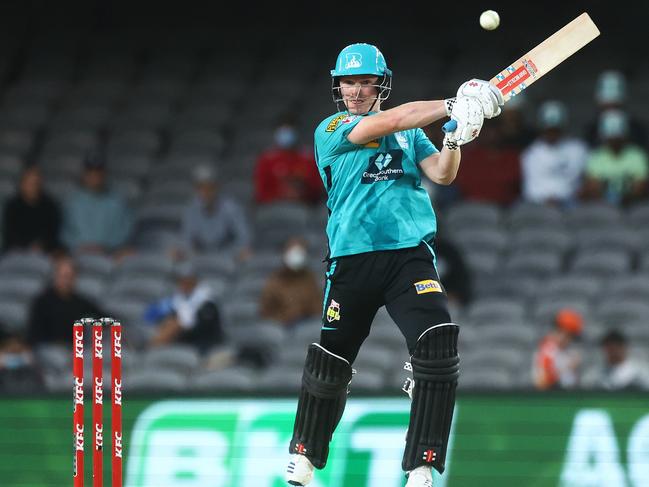
A concept fast-tracked by Covid – a “blessing in disguise” according to Morrison – and England’s County system placing caps on the number of international players it can recruit, 365 evolved into two major competitions this year.
“We were one of the very first regions in the world to restart cricket (after Covid),” Morrison says.
“(Covid) was a blessing in disguise in some ways as it blew apart old assumptions about what was and wasn’t possible in hosting elite cricket programs and matches in Australia.”
The second comp, the five-team Top End T20 which is set to begin in August, is perhaps the most significant, though.
Alongside a Territory representative team – sourced from the 13 best local, short form players – a Cricket Australia XI and two teams drawn from the Melbourne Stars and Renegades’ academies, Top End T20 will have a strong international flavour.
For the first time in five years, the Papua New Guinea “Barramundis” will return to the Australia for a game of cricket, after previously competing in the SACA Redbacks League.
However, PNG’s involvement is far from merely a nostalgic move but a precursor to 365’s future direction, with both Walker and Morrison enjoying audiences with the ICC about the program’s growth.
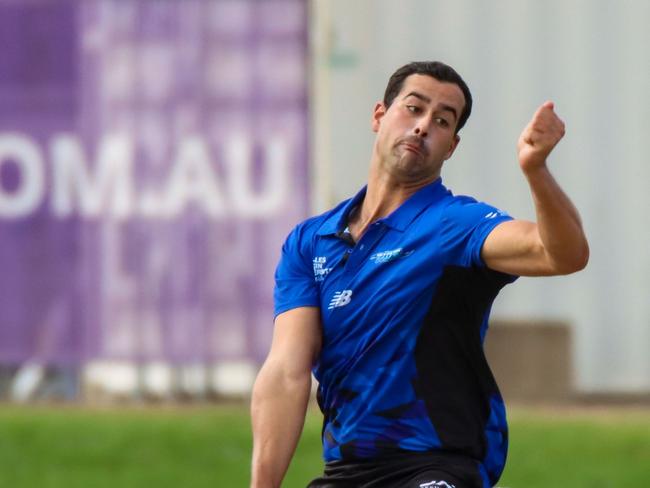
In short, NT Cricket would ideally add further emerging countries to the 365 program in coming years, possibly creating a “mini IPL” style development league.
The vision adheres to Walker’s belief that cricket is essentially a private enterprise and you won’t get anywhere without a strong business case.
“You don’t get an international match just by telling people you want one,” Walker says.
“You’ve got to build your business case to make sure it is compelling, in addition to making your local Territory aspiration and desire to host big matches known.”
Walker insists the Territory must continue to harness its unique position within the Australian cricketing ecosystem, and focus on what the other six states aren’t doing, rather than what they are.
He also sees no benefit in having a Territory team within the Sheffield Shield or the Big Bash, with neither the population or the finances to back up either option.
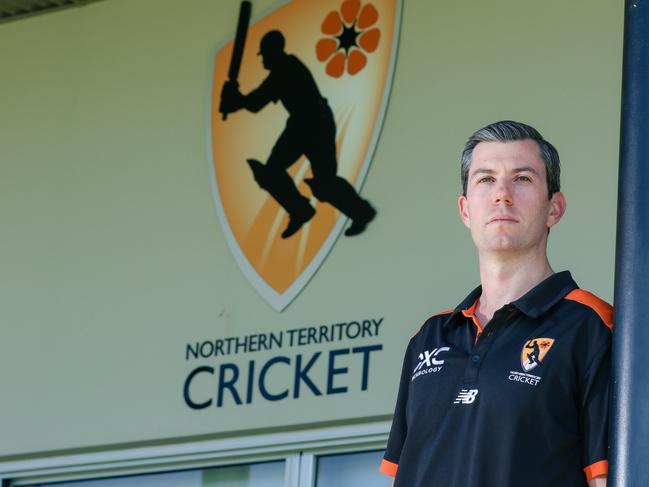
“It’s a waste of time and energy in the short and medium term,” he says.
“Even striving for the NT to play in the Big Bash is fundamentally challenged due to the cost and climatic challenges presented by the wet season.
“But if we were to strategically pitch for something innovative like a north Australian Big Bash team through a joint venture with someone like Queensland Cricket that played across Darwin, Townsville, Alice Springs and Cairns, that could make for a compelling business case.
“But it would require building a stadium with a roof in Darwin, which is an extremely expensive exercise.”
With Darwin’s cricketing fields currently dotted with an array of first class cricketers for the second edition of the Strike League, it’s fair to argue Territory cricket has come a fair way in Walker’s time.
Back in 1978, when a letter from the newly-formed NT Cricket to the Australian Cricket Board, alerting the powers that be of its existence, it was not important enough to warrant a response, Walker says.
More than 40 years on, and while the Territory is not a member of the CA board, and has no real clout, influence or voting rights, it is treated like a member, he says.
Significantly though, for the first time in the sport’s history, all chief executives across CA and every state and territory, will gather in the NT next month with Morrison having “a seat at the decision making table”.
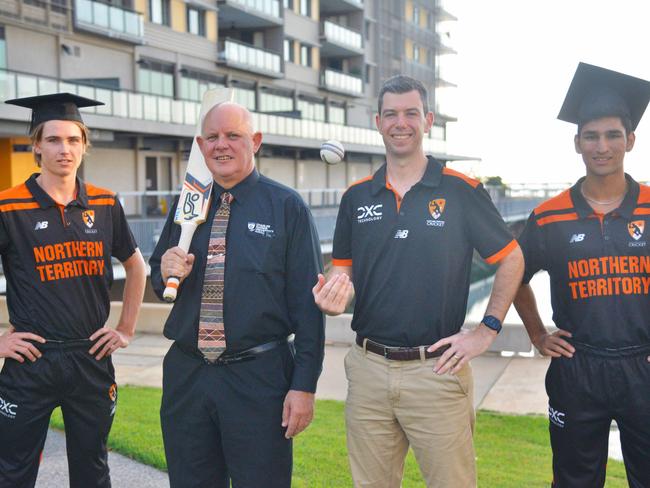
Another recent marker pointing to a stronger future, in terms of the Territory’s place within the Australian cricket system, ultimately ended in disappointment.
Back in February, Cricket Australia staffers scoped out TIO Stadium as NT Cricket built a business case to host a one day international in Zimbabwe in August this year.
While Darwin ultimately missed out, and Townsville favoured, Morrison says the process has been beneficial.
The peak body now has a firmer idea – the “corporate knowledge” in Morrison’s words – how much it would cost to host a match in the future, with CA announcing recently Darwin would be considered for international matches “in coming seasons”.
After going through the process, Morrison estimates an initial $200,000 price tag to install a drop-in pitch for a once-off match, could be effectively halved.
As TIO is a “non traditional venue”, large costs would also have come from security, broadcast and temporary infrastructure and other once-off expenditures, if Darwin had hosted this year.
However, NT Cricket will look to lock in a consistent run of international matches at the Marrara, essentially bringing matches “online and offline” over an extended period of time, while creating ongoing commercial partnerships to help reduce the cost.
The fact remains, however, that playing cricket at TIO would be far from a major money-making exercise due to its limited capacity and relatively low population in the Territory.
“You’re also not going to generate the same amount of revenue here as you would at a traditional venue due to the smaller capacity at TIO Stadium and the size of our population,” Morrison says.
Despite excited chatter about Darwin hosting an international match, concerns remain around anticipated attendances, with a test in Darwin in 2004, despite the big names of Warne and McGrath playing, attracting only a few thousand people.
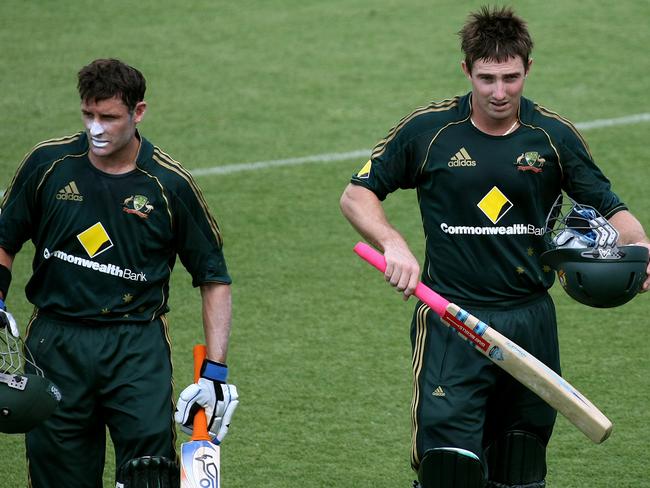
While there are positive signs about Darwin breaking its 14-year international hosting drought soon, Walker insists NT Cricket’s future is strongly linked to the subcontinent.
As franchise cricket grows in popularity and players enjoy greater riches and autonomy, Darwin has a big role to play, he believes
“There’s a global movement towards franchise cricket,” he says.
“And that opens all kinds of opportunities for us.”
Again, Walker says the Territory must capitalise on its unique position to provide an “alternative vision”; running its domestic competitions efficiently while keeping an eye on a “bigger world”.
That could involve tapping into the commercial potential which comes from over a 1m people watching Cricket 365 online last season.
“The sky’s the limit when it comes to global growth, but for the moment we’re focused on proving up this year’s opportunity with PNG,” Morrison says.
“If we get this year right we’ll be well placed to host other international teams in future years.
“NT Cricket exists to ensure cricket thrives in the Northern Territory. For cricket to thrive we need to attract investment, so pursuing these types of opportunities are critical.”





